
Life is viewed through many windows – some thick, some thin; some clear, some whorled. Some we cut from the very walls around them; others we build to fill the holes those walls have worn.
But any eye with the will to see seeks a window for its mate; for what waking mind could look upon the vast infinitude of worlds beyond them and not be moved to rove still further afield?
A/N: Inspired by a recent spate of travel.
Preread through the effort and kind attention of Admiral Biscuit, Luna Farrowe, Neighrator Pony, Thornquill, and Illya Leonov.



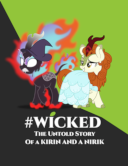


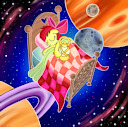











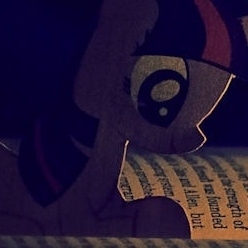

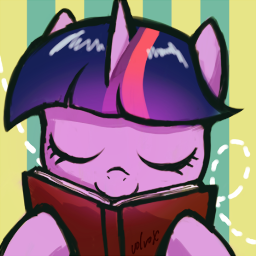
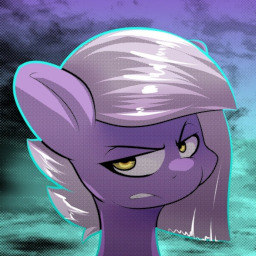
Hey, a travel-inspired story! I can get behind that. Good, too. Very deep, I like it. (No character tag?)
Well, then. That explains why you enunciate that word like you do across the pond. Or is this a chicken-and-the-egg situation?
Nicely poetic. Feels a bit like a short experimental film in story form.
An EqG story from Cygnus? Now there's a twist even I couldn't come up with!
But seriously. Though ever so many stories in this fandom involve journeys of some kind, mentions of homesickness are conspicuous by their absence. This is possibly in part because it's difficult to evoke in words. It's not surprising, then, that a whole short story could be dedicated to the concept. The personal style of Cygnus, which I've noticed taking form over time, is fitting for this theme, because it's stylish without being too purple.
pre05.deviantart.net/3313/th/pre/i/2012/165/8/2/at_world__s_end_by_rhads-d51gltx.jpg
You don't know your luck until it turns, you don't know what you have until you lose it, you don't know how much you love someone until they're gone.
Devastating portrayal of what Sunset lost, in the time before she was able to gain anything more. Or, after a dream like that, when all she'd gained afterwards felt like nothing in comparison to the nothing she'd lost. Excellent work. Thank you for it.
9847096
Insomuch as crystallised aggravation with the whole spinoff can be characterised as 'an EqG story', sure. ;P
And uh-oh -- I'm starting to grow themes. Quick, better start shitposting before the cancer spreads! But, still, I take your meaning -- truth in beauty, if not the converse.
9848112
Criminy, but that first pic captured that to a T -- nice find.
9846874
Hey, good to see you 'round these parts. ;D Glad you liked the story, too, whether or not the protagonist was properly indicated; I'm finding more and more as I write things like this that tags are a limitation, not a tool. xP
I also tend to operate under the assumption every issue of language and pronunciation falls into the chicken-and-egg fiasco (just look at all the words English has co-opted and Anglicised over the centuries), but on the subject of automotive uncertanties, I cannot speak with certainty.
9849009 As always, thank you for your carefully-crafted summation. It never fails to enrapture me just what people end up taking away from my work.
As always, thank you for your carefully-crafted summation. It never fails to enrapture me just what people end up taking away from my work.
I was glad to provide.
9850095
Aye, I saw it several months ago, it was a real trip digging it up again. I'm glad you liked it, did the music suit as well? I honestly thought that was the harder task by far, this story features quite the mood swing.
9850109 Good to see you post something, anyway. Tags can be used for good or ill, really depends on the exact circumstances.
The Admiral sent me and his recommendation is well deserved. I can't help but feel for Sunset as I sit here and let the emotions the text transmitted wash over me. Well done AShadowOfCygnus, well done.
I could paint this picture in my head, and I feel like the beauty of this story is that it won't come out quite the same for everyone.
Very well done!
Again, a lot of great writing that sounds like it was meant to be read aloud. Like this:
(I'm ambivalent about having two "sunset stretched long"'s in a row, tho. I hear the joining-by-repetition it achieves. I think it's just the adjective "windswept" that I don't like, because it's adding another detail, making the reader parse and process something new at the very time the reader is supposed to be recognizing a repetition of something old.)
More great writing:
The whole section around this part confused me:
I can't tell whose opinion each part of this is expressing. I'm guessing the first clause, and "being had been deemed to be enough", are Celestia's; the "never was it about her" and "becoming" are Sunset's objection. No idea what the island vs. floating in the sea mean. I have the uncomfortable feeling that this is casting Celestia as a spiritual guru, living in a world of timeless abstractions and collective identities; against Sunset as a naturalist, an individual animal living and growing in her own body, here and now; and encouraging the reader to read it as a criticism of the latter. Criticism of naturalism and individualism is perhaps not entirely wrong, but is certainly over-represented in Western culture at present, causing a serious imbalance in Western thinking.
I don't like putting "truth is beauty", which is pure Plato, into Celestia's mouth. Historically, it's an idea that sounds beautiful but is responsible for the blood of millions. Not that it's completely wrong; "truth" is, I think, beautiful. But beauty is not truth; beauty is in the eye of the beholder, and can't guide one to truth, because the truth is ugly to those who don't yet understand it.
(In "Beauty is truth, truth beauty," "truth" refers to Plato's ontology (and more specifically to The One / The Good, which Christians a century and more after Christ equated with God), and to value judgements based on that ontology. I use the term "truth" differently, since I disagree with Plato about everything.)
Overall, beautiful prose, a worthy subject, pretty tightly constructed. I have only 2 negative criticisms:
10251827
This was the intent, yes.
The adolescent need to be the tall poppy, seen through the lens of someone who still believes it: not able to let her power and capability speak for themselves, but needing to be rewarded for it beyond what she was already being offered with the chance to study and learn from Celestia herself.
Mm. Depends on the extent you want to read 'spiritual guru' into my long-running theme of alicorns-as-detached-yet-tangible-goddesses. There's room for critique of both in this argument, depending on whether or not you want to believe Sunset had a right to power, or the crown, or Celestia's love, or whatever it was that she was ultimately after; or, in the classic fashion, if Celestia's overtolerance of or inability to shut down smaller disagreements led Sunset to take bigger and bigger risks in pursuit of what she thought she was owed.
In brief, though: yes, Celestia sees the bigger picture and seeks to better all; Sunset sees the bigger picture and thinks she should have more say in how it's handled.
Can't speak for all of Western thinking, I'm afraid. Just two characters and how their interplay shapes each other.
I won't argue the latter; the former is, as ever, a matter of interpretation, perhaps best distilled as 'Could this one be different?' And I guarantee you that rulers as . . . intelligent as I've always read Celestia and Luna to be would surely have asked themselves and resolved to test. (I accept no responsibility for any depictions past S3, as that was the point when the story, as far as I was concerned, ended, and therefore never write taking into account except to borrow characters from. )
)
Good! At the point where the story picks up, neither does she.
Never have I received more fulfilling backhanded praise. If you liked this, you might enjoy Salarymare's Infinitude, as well. Part of the same series, dealing with another facet of the same topic, but more explicit.
If you liked this, you might enjoy Salarymare's Infinitude, as well. Part of the same series, dealing with another facet of the same topic, but more explicit.